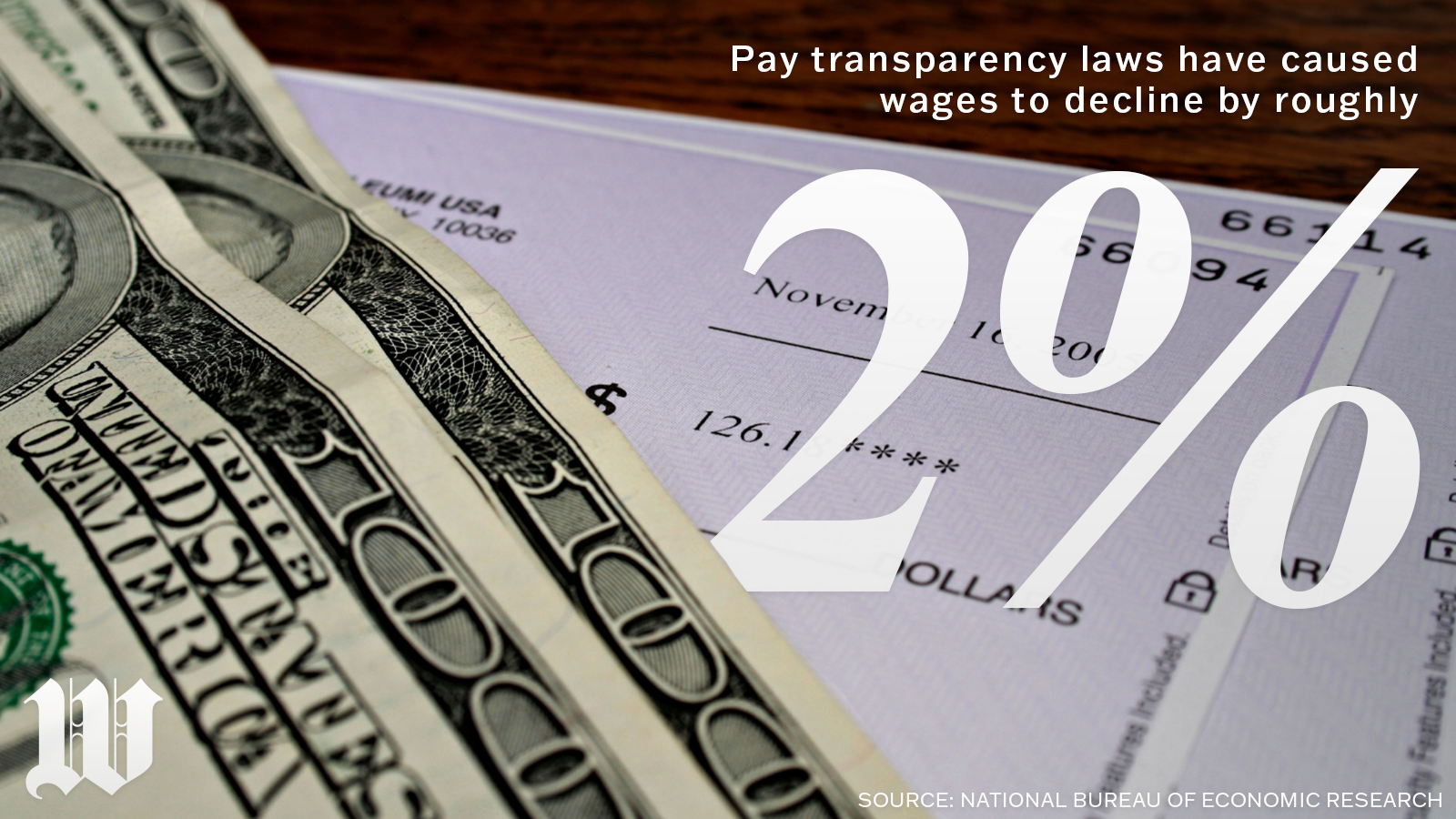President Biden’s push to end racial and gender disparities in the job market by requiring employers to divulge workers’ salaries could backfire and result in lower pay for all workers, several studies have found.
Mr. Biden has proposed forcing federal contractors and subcontractors to reveal what a job pays when posting an open position. The rule, which could take effect in April, would also bar federal contractors from asking job applicants for their salary histories.
It would apply to all personnel and positions working on or “in connection with” a federal contract.
If enacted, the rule would likely apply to 89,822 federal contractors who handle about $694 billion in federal contracts, according to data from the Government Accountability Office. Some of the biggest contractors affected would be Pfizer, Bloomberg, Raytheon and Lockheed Martin.
Mr. Biden has also pushed private companies to make salaries transparent. His proposal was a staple of speeches when he came into office.
Administration officials say the rule is necessary to shrink the pay gap between women/minorities and White men. They say it is easier for bias and discrimination to factor into pay decisions when salaries are determined secretly.
SEE ALSO: Environmental justice groups spend Biden aid on payroll, trips, rap song
By making pay ranges open and more accessible, women and minorities can see whether they are underpaid, Mr. Biden has argued.
“These new actions adopt common-sense policies that will help pay millions of workers fairly, close gender and racial wage gaps and yield tangible benefits for the federal government and federal contractors,” Mr. Biden said in a statement announcing the proposal.
On average, a Black man earns 87 cents for every dollar a White man receives. Hispanic men earn 91 cents for every dollar their White counterparts make, according to data from PayScale, a compensation data firm. PayScale found that women earn 82 cents for every dollar a man receives.
So far, 22 states and several municipalities, including New York City, have some form of a pay transparency law, and several more are on the horizon. In June, employers in the District of Columbia must post projected salaries on all job listings.
Researchers say those laws decrease wages by reducing an employee’s bargaining power. An August 2022 study by the National Bureau of Economic Research revealed that pay transparency laws have caused wages to decline by roughly 2%.
Wages overall have grown by roughly 20% since the start of the pandemic, according to Labor Department data.

The laws give detailed salary information to workers and other employers in the industry. Companies use that information to match the wages set by the lowest-paying employer in that sector, thus depressing wages across the board.
Because the information is available without any coordination among the employers, it essentially gives them the power of collusion without actually colluding.
“If all workers get the same and cannot negotiate this wage upward, then the firm gets the power to set the wage. To maximize its profit, the firm acts like a monopolist and sets a relatively low wage. Thus transparency increases the bargaining power of the employer, becoming the enforcement mechanism for a low wage,” researchers wrote in the National Bureau of Economic Research study.
Additional research supports the bureau’s conclusions. A University of Chicago study recorded a 7% drop in pay for city managers in California after a 2010 law made their salaries public. Researchers at the University of Utah studied the salary histories of 100,000 U.S. academics from 1997 through 2017. The study found that those at universities with pay transparency earned roughly the same wage.
While the Biden administration pushes salary transparency, it has stepped up efforts against employers sharing wage and benefit information with competitors.
In 2022, the Justice Department took action against agriculture giant Cargill and two poultry processing companies, accusing them of sharing wage data in a scheme to keep down payroll costs. The case was settled with Cargill and the two processors paying an $85 million settlement.
The Justice Department and Federal Trade Commission have launched a series of aggressive enforcement actions to prosecute wage-fixing agreements. The Justice Department has five pending criminal cases against companies.
Studies have also shown that workers are less likely to push for higher wages with transparency.
One reason is that those with higher salaries fear jealousy and resentment from co-workers.
Pay secrecy makes workers more skeptical of employer claims that they can’t afford to increase salary and bargain more aggressively. With transparency, workers seemingly understand that if they ask for more money, their colleagues will too, thus putting a strain on an employer who can’t afford to raise so many salaries.
“Employers credibly refuse to pay high wages to any one worker to avoid costly renegotiations with others under transparency. In situations where workers do not have individual bargaining power … greater transparency has a muted impact on average wages,” researchers wrote in the National Bureau of Economic Research study.
• Jeff Mordock can be reached at jmordock@washingtontimes.com.




Please read our comment policy before commenting.